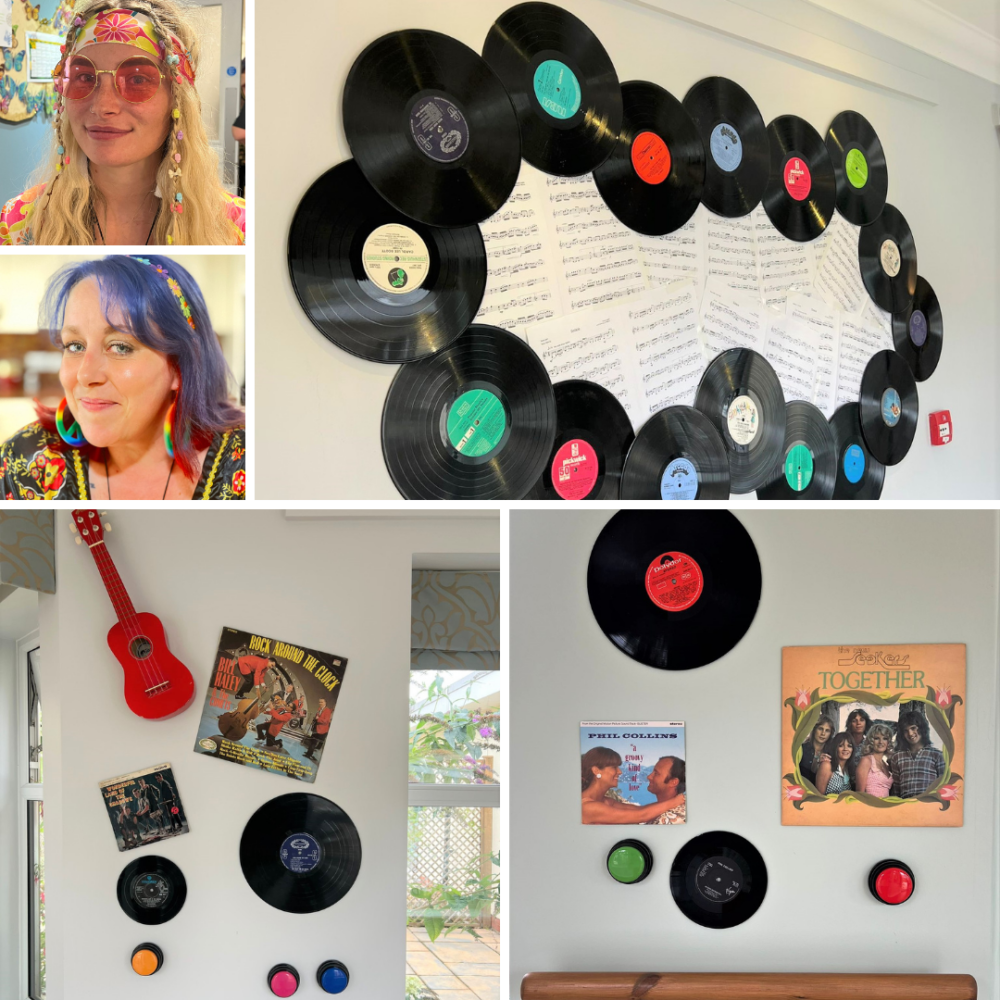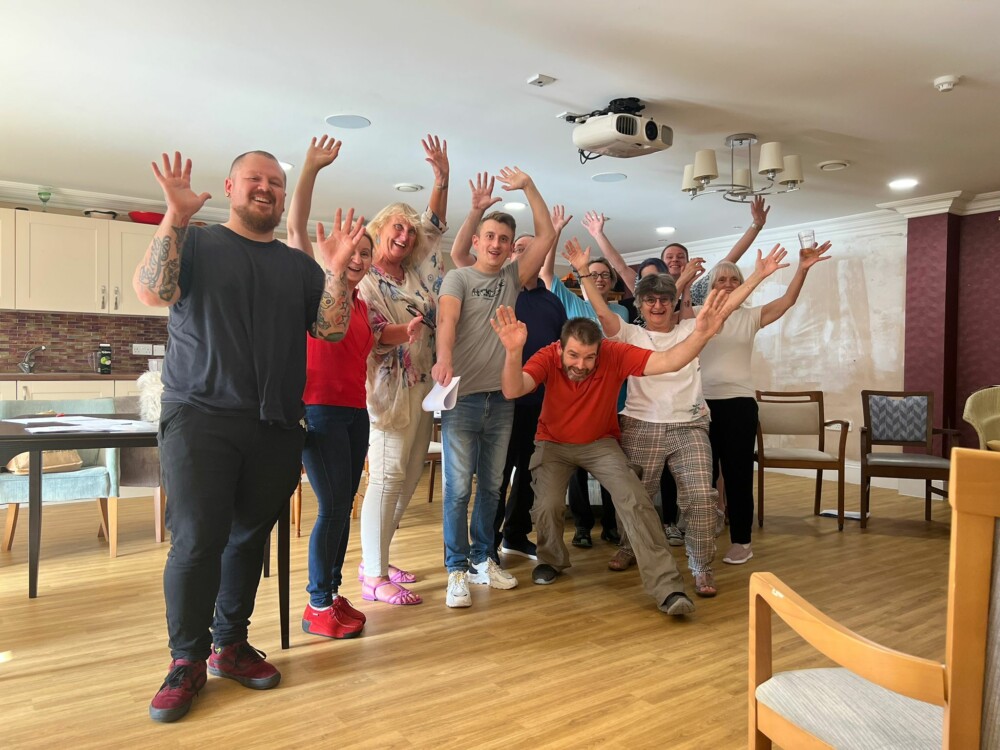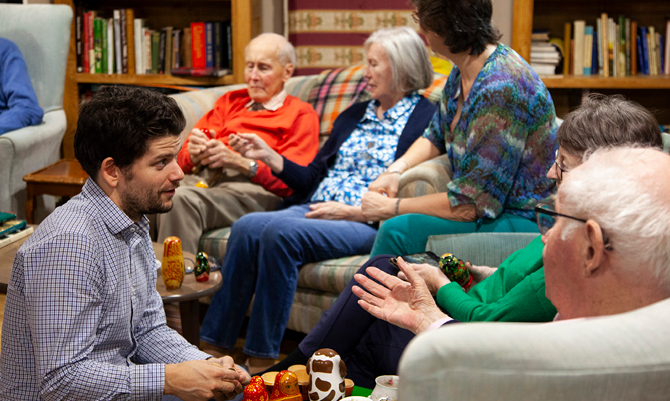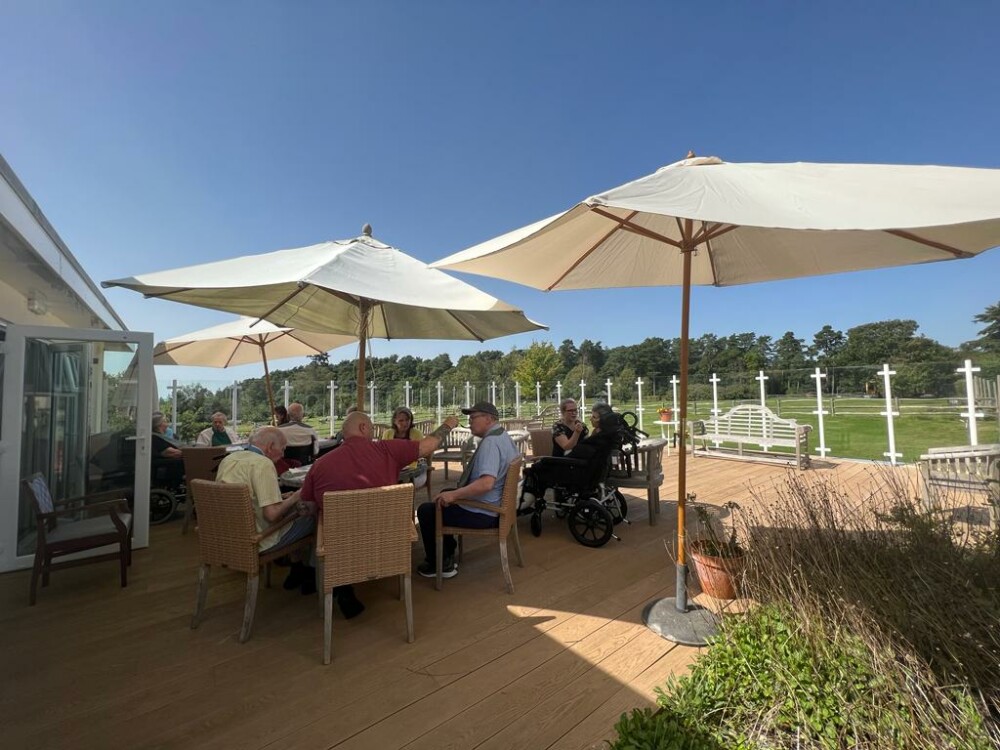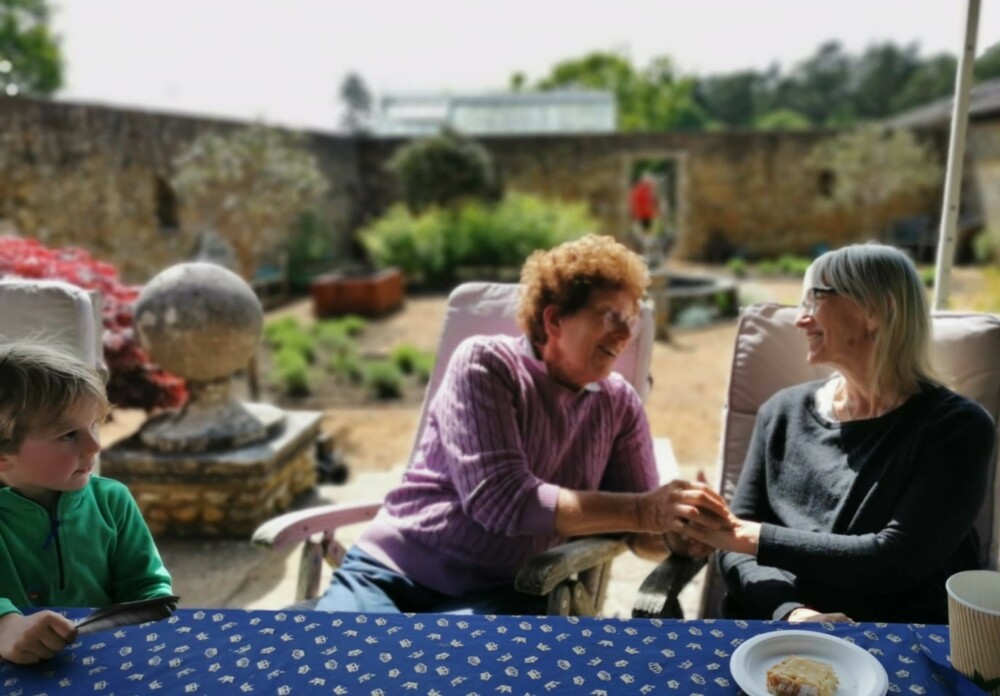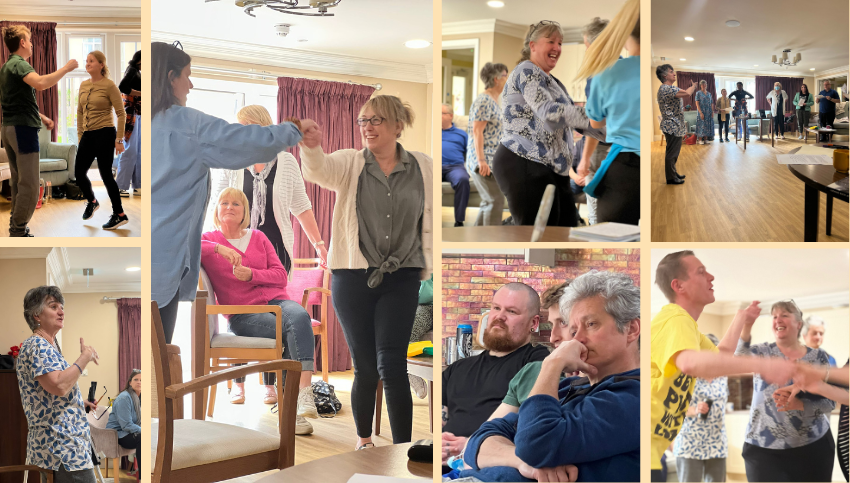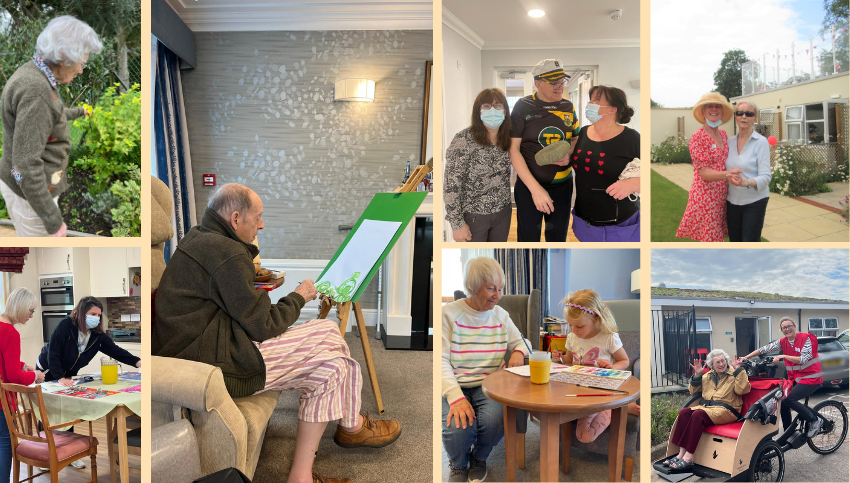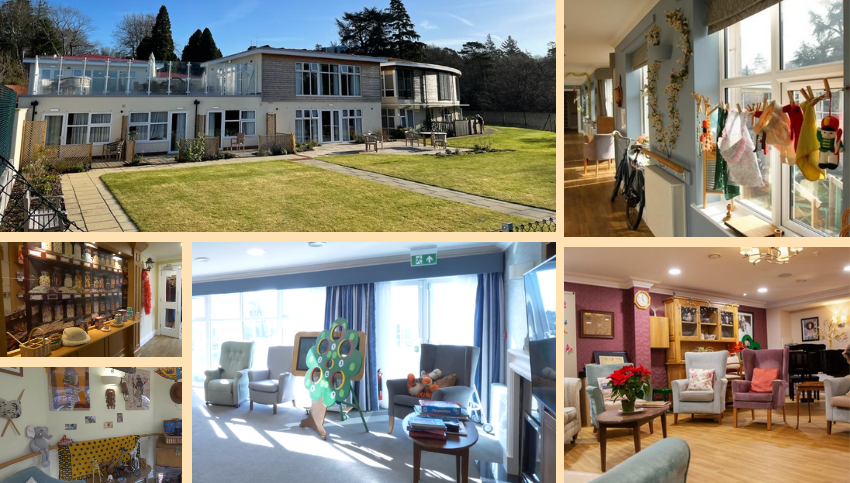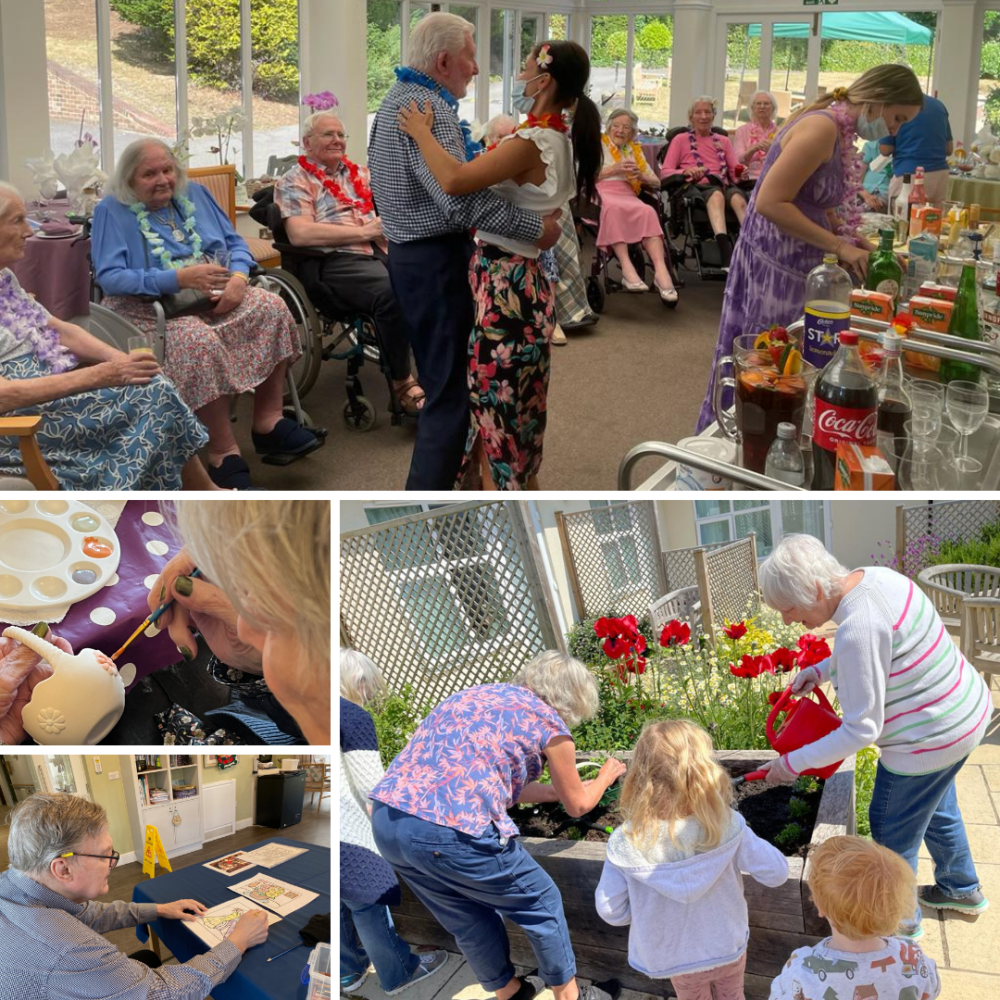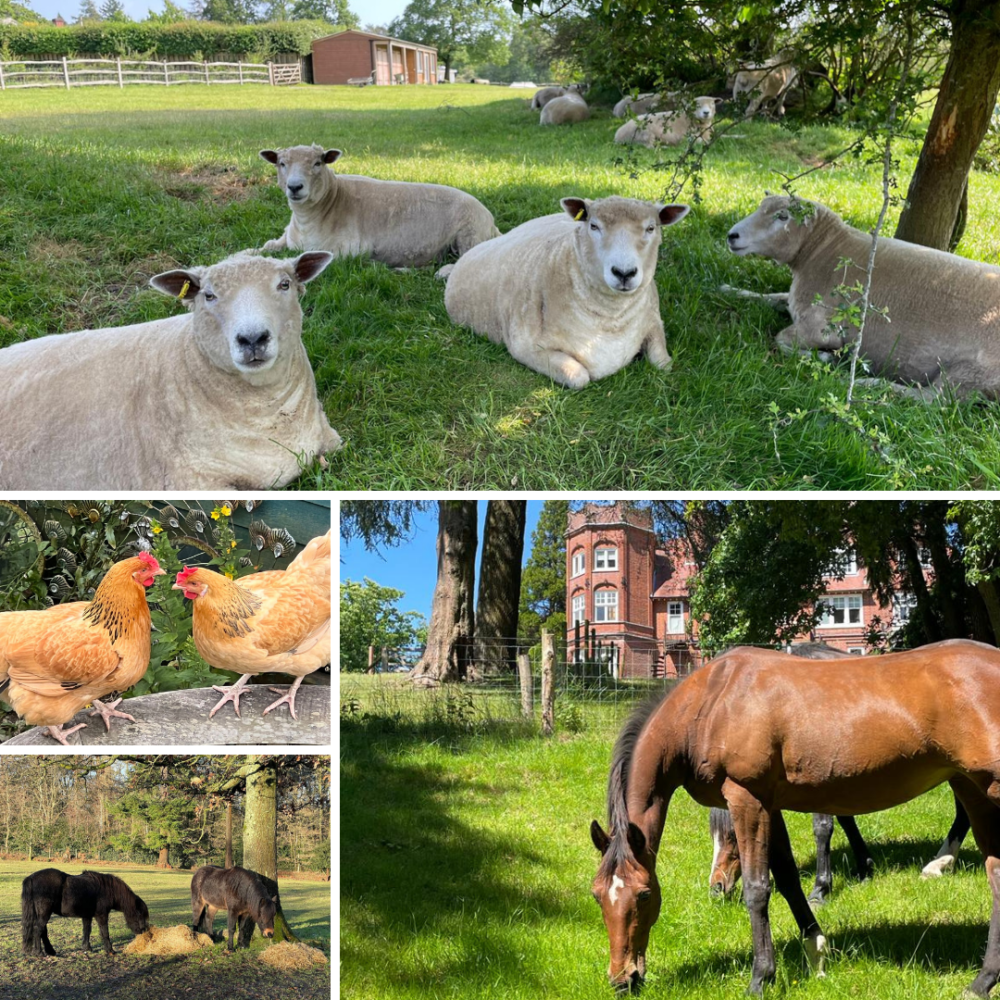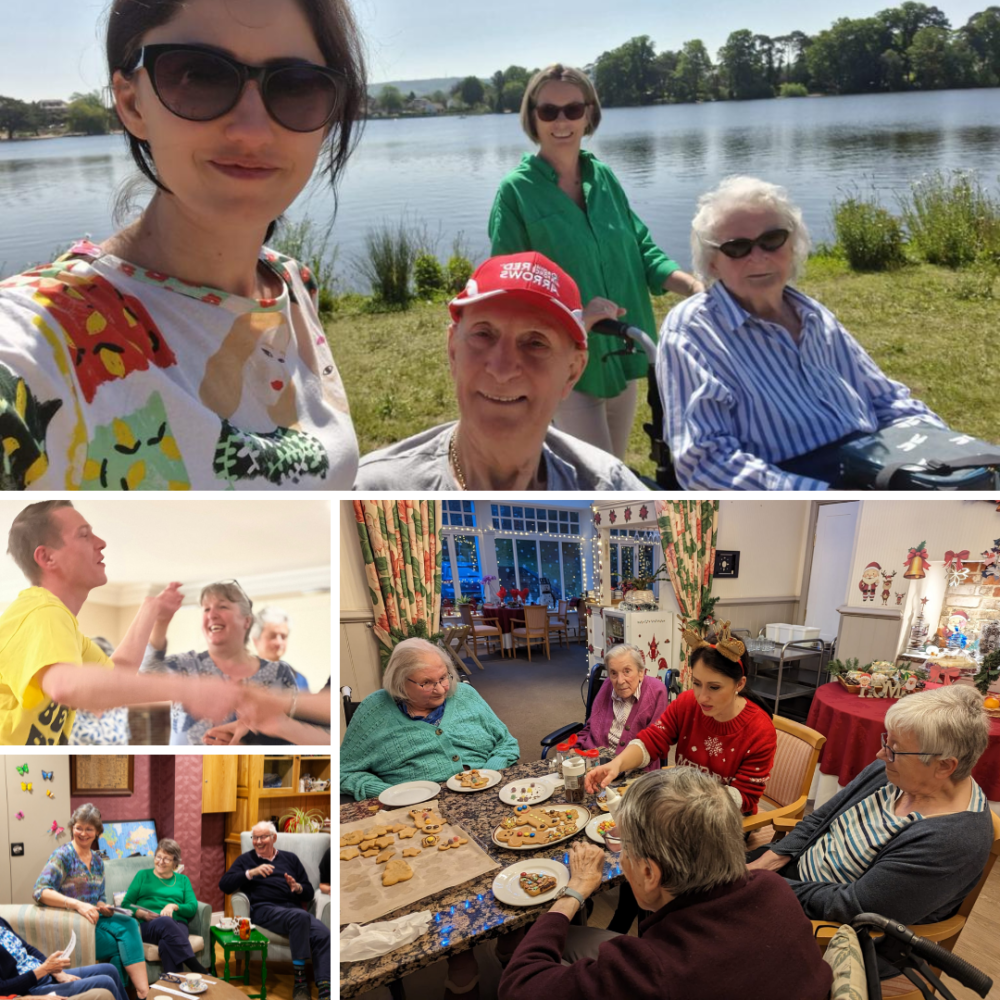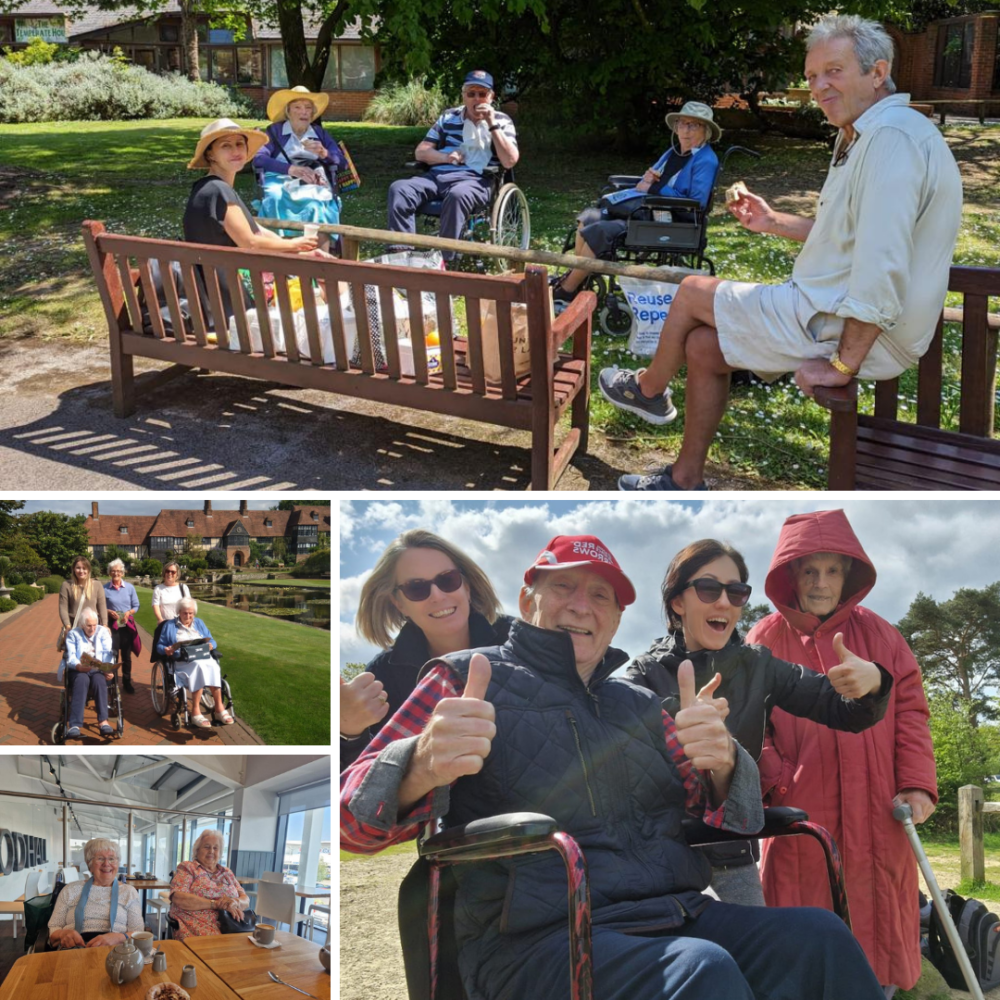Looking forwards into May we are putting the final plans in place for Dementia Action Week, which this year runs from 13th to 19th May. Collaborating with our local community in Grayshott, we will be raising awareness of how people can act on Dementia and widen the support for families living with Dementia across the area.
Specialist Dementia Care at Langham Court
Every year we support many families work through their journey when the time comes to decide if it is right for a loved one to move into a care home. We see our role as being a trusted advisor, sharing information, advice and the benefits others in their position have experienced following a relative or friend living with Dementia make the move into Langham Court.

Why are we so good at caring for people living with Dementia?
Whilst we find people often come to live at Langham Court in the middle to later stage of their Dementia journey or when someone has specialist needs, our person-centred Butterfly approach enables us to support people at an earlier stage of Dementia, unlocking their potential and drawing out some of the skills, emotions and memories which the disease is taking from them.
We care for the person as they are now and also have respect for and interest in the person they have been throughout their life. Using our person-centred care approach, the team will discover what music preferences residents may have had, what people’s hobbies have been, their favourite books and how they lived their lives before Dementia. We’ll get a strong holistic view of them as a person and will honour that person in how we communicate with and care for them.
Our homemakers take a vital role in this, arranging activities each day which are open to residents to participate in (or not). We are experts at creating meaningful moments for everyone in our care each day, however small that may be. We are proud to offer unlimited care and are not governed by tiers of available care time per person like other homes. Read more about the ro our Homemakers
We know that people with Dementia can live well and benefit from our specialist support and interaction throughout the day, when they need us or are ready to engage with us. We are, of course, also able to care for people with Dementia when they need high-dependency support or nursing and our household living model is perfect to manage this within Langham Court.
Harnessing the power of creativity
Over the years, we’ve seen that music can unlock the potential and abilities of people with Dementia. It’s a really effective tool for meaningful moments.
When we know a resident’s musical preferences as part of knowing and understanding them, it’s beneficial for reminiscence activities which enhance their sense of identity. The Homemakers will often organise a theme day such as our recent 60’s day at Langham Court.

We know that music also stimulates physical health, influencing movement and heart rate. The social interaction accompanying the music is essential to reconnecting residents with others and leading to a sense of joy and togetherness. Quite often, we get glimpses of a resident how they would have been decades ago. It’s a pleasure to behold.
Music and dance can have a profound benefit for residents with Dementia, with previously sedentary people getting up and dancing or singing the lyrics to songs when generally they find it hard to communicate.
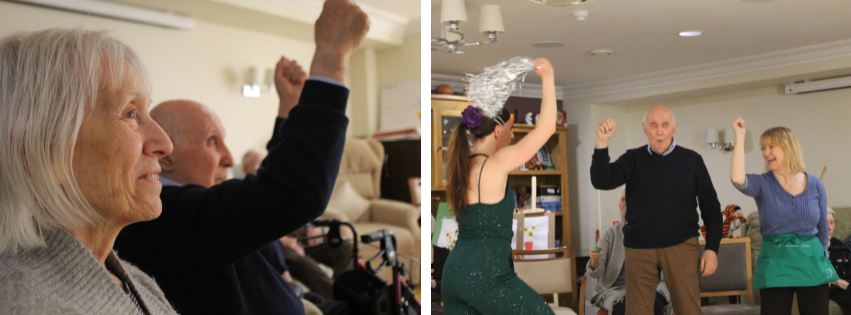
Other activities available at Langham Court include our Gardening Club and Art Classes, as well as shared reading of well-known short stories or poetry, which we find can also unlock emotions (joy, excitement or sadness), creating shared connections and new forms of engagement.
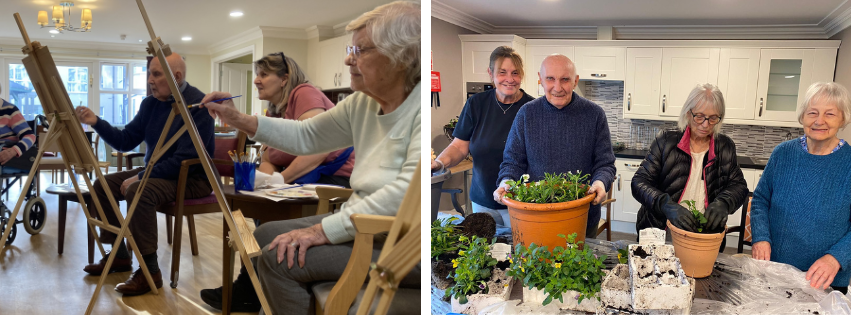
Families enjoy visiting our residents.
Offering all inclusive care for us goes beyond just supporting a resident living with Dementia with their personal needs each day, our holistic approach focused on creating meaningful moments also extends to the family and friends who come to visit.
Families often tell us that they enjoy being able to spend quality time with their loved ones when they come to visit Langham Court, safe in the knowledge their medical and personal needs are well catered for, they can focus on the moment and create meaningful interactions whilst they and their loved ones are both relaxed.
For some that may include a walk around the Estate (we have wheelchair accessible paths or our golf buggy for those who struggle with mobility), have grandchildren help with the raised beds around the terraces, or simply take afternoon tea together in one of the residents lounges.
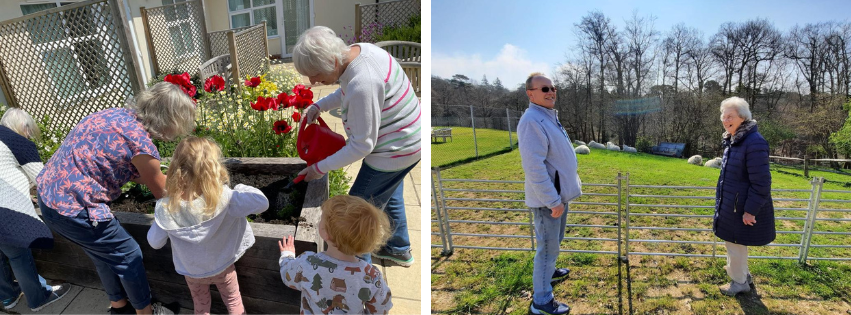
The knowledge that so many families get inspiration and comfort from seeing some of the positive behavioural and emotional changes which are evident in their loved one since they moved in with us, is all the motivation we need to continue to enhance the specialist dementia care we offer at Langham Court.
At the Huntington & Langham Estate, we provide dignified, compassionate and personalised care to our residents, giving them the nurturing support they need to continue living full, independent and meaningful lives.
To arrange a visit to the Estate and tour our homes and grounds, please call 01428 604 600 or complete this form.










